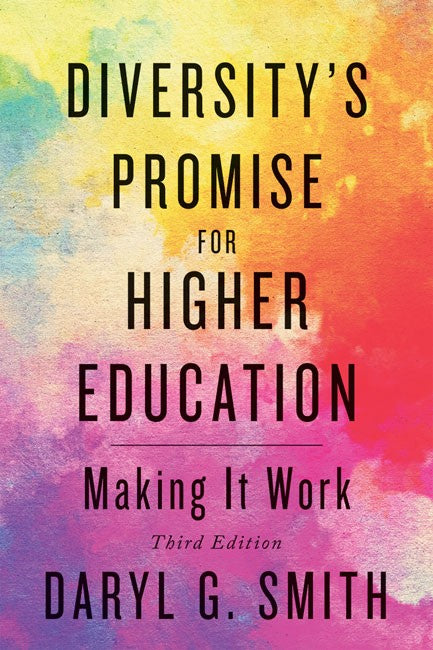Daryl G. Smith has devoted her career to studying and fostering diversity in higher education. In Diversity's Promise for Higher Education, Smith brings together research from a wide variety of fields to propose a set of clear and realistic practices that will help colleges and universities locate diversity as a strategic imperative and pursue diversity efforts that are inclusive of the varied'and growing'issues apparent on campuses without losing focus on the critical unfinished business of the past.
To become more relevant to society, the nation, and the world, while remaining true to their core missions, colleges and universities must continue to see diversity'like technology'as central, not parallel, to their work. Indeed, looking at the relatively slow progress for change in many areas, Smith suggests that seeing diversity as an imperative for an institution's individual mission, and not just as a value, is the necessary lever for real institutional change. Furthermore, achieving excellence in a diverse society requires increasing institutional capacity for diversity'working to understand how diversity is tied to better leadership, positive change, research in virtually every field, student success, accountability, and more equitable hiring practices.
In this edition, which is aimed at administrators, faculty, researchers, and students of higher education, Smith emphasizes a transdisciplinary approach to the topic of diversity, drawing on an updated list of sources from a wealth of literatures and fields. The tables and figures have been refreshed to include data on faculty diversity over a twenty-year period, and the book includes new information about
gender identity, embedded bias, student success, the growing role of chief diversity officers, the international emergence of diversity issues, faculty hiring, and important metrics for monitoring progress.
Drawing on forty years of diversity studies, this third edition also
includes more examples of how diversity is core to institutional excellence, academic achievement, and leadership development; updates issues of language; examines the current climate of race-based campus protest; addresses the complexity of identity'and explains how to attend to the growing kinds of identities relevant to diversity, equity, and inclusion while not overshadowing the unfinished business of race, class, and gender.

